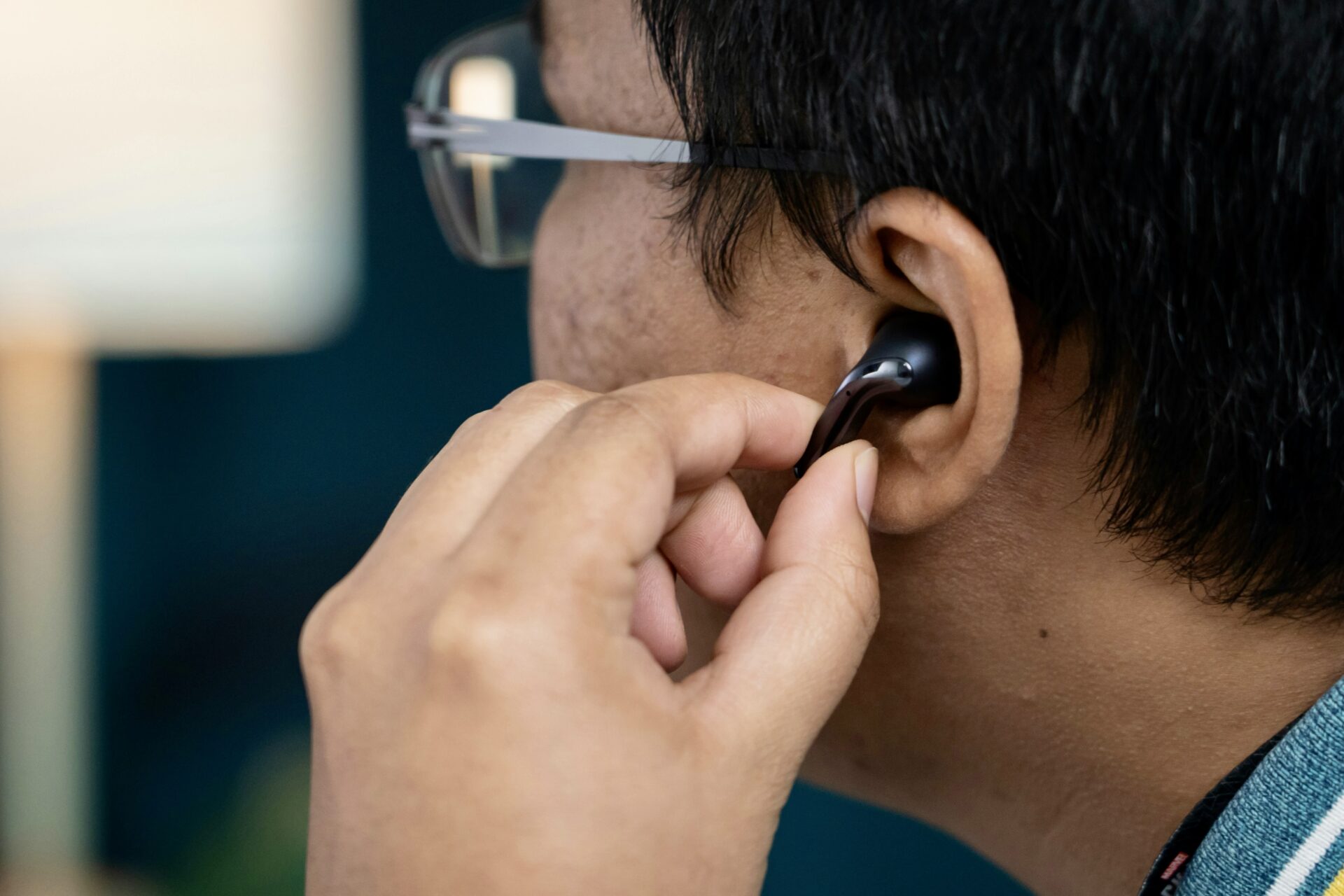


Written by Emily Cross.
21 minute read

Finding ways to cope, heal, and move forward is something that many of us struggle with when someone we love has died. There is certainly no shame in admitting that we may need additional help and support at times. Sometimes you may not feel like you want to connect with a friend, relative, or grief professional in a one-to-one setting, and this is perfectly understandable. What you may not have considered, however, is how the emerging genre of grief podcasts may be able to help you.
While our primary focus is providing direct cremation services, we speak with people who are trying to deal with grief in a variety of different ways on a daily basis. Many have told us in authentic, heartfelt conversations that they found the voice of a skilled and compassionate speaker of great benefit to them at this time.
We hope that by providing some initial ideas and starting points that you may be able to find something to hold onto at this difficult time. Even just taking a look at a couple of podcast previews informed by our suggestions below may help you connect with a thoughtful, caring voice that can be with you with the push of a button. If you feel emotionally ready, you may find great comfort in one of the suggestions we have included in the following guide.
Key takeaways:

In our role as a family-run funeral provider, we are always looking to understand and learn about the latest support resources that are out there. Serving families from all walks of life gives us the privilege of hearing about the many ways people cope and heal in their own time.
The emerging world of grief podcasts has become a valuable tool for those trying to come to terms with the complex range of emotions that come to the surface when a loved one dies. They are designed to be accessible, relatable, and therapeutic all at the same time. By taking a comforting approach to talking about some of the more taboo or emotionally challenging topics, they may feel like a friend sitting by your side, talking you through what it all means.
Others find that the act of sitting and listening to the thoughts and feelings of someone who has navigated a similar experience and situation really helps. Their voice may be able to offer a new perspective and show you that you are not alone in what you are experiencing right now. This is not about minimising or dismissing your grief. What the presenters are aiming to do is show you that emotional healing often begins when you move beyond social isolation.
If you are learning how to go about remembering a loved one in a way that feels real and authentic, it may feel confusing trying to figure out where to start. Add in the fact that you may also be having to face a range of other competing issues and emotions, as much of life feels like it is pushing you to try to continue unabated, and you may be feeling overwhelmed. Grief podcasts exist to help bridge these gaps and to show you that by opening up in a way that you feel comfortable with, you may be able to continue moving forward in a way that doesn’t force you to try to push your grief to one side.
Our support networks, personal circumstances, and preferences all influence how we cope with what has happened. From what we’ve seen, those who serve and support others often find comfort in hearing genuine stories and real conversations. When you feel ready, you might wish to explore this yourself.
Many of the popular grief podcasts are based around a simple format where hosts and guests share real-life grief journeys in a way that is authentic, personal, and feels real and relatable. By listening to what they have to say and sitting with the thoughts that their stories create in your mind, you may find that you are able to find the time and space to allow you to keep moving forward. The power of storytelling lies in its ability to build an emotional connection with an audience that is made up of a wide array of different people. Following the stories at a pace that feels right for you may help you to process some of your own emotions and feelings.
You may also find that the comforting and relatable nature of hearing others’ experiences provides an additional source of comfort. At a time when someone you love dearly has died, it can be normal to find yourself retreating within yourself and isolating yourself without even realising it. Hearing the voices of people from outside of your circle may help you to remember that there are people in your life who are there for you when you need them.
One of the important things to know about grief podcasts is that they often have credible contributions from professionals such as therapists, grief counsellors, and mental health professionals. This allows many of them to be able to offer helpful advice alongside relatable, personable content so that you feel guided without feeling like you are always listening to a wellbeing consultation. The informal, caring, and compassionate nature of such podcasts is something that may help you to ease yourself into your new habit of listening by finding a voice that feels like a friend.
By discussing things such as coping strategies, healing, and the navigation of complex emotions, the experts who contribute to grief podcasts can provide a clear sense of direction. This doesn’t mean that you have to follow everything they suggest or agree with by default, but it does mean that you will have a clear path laid out in front of you should you feel ready to start navigating it. And if you prefer to move more slowly and find your own, listening to the stories while considering the advice of the experts and then applying it in your own way may also help.
You may find it helpful to listen to a grief podcast that strikes a balance between educational and therapeutic content so that you can explore both sides of the journey that lies ahead. For example, one episode may talk about the different symbols of grief from a personal perspective before transitioning to actionable mindfulness tips from a therapist. Finding a balance that feels right to you may help you to keep moving forward at a pace that you feel comfortable with.
If you don’t know what to do when someone dies, the first thing to recognise is that feeling this way is completely normal. No one should feel judged for feeling like they have lost purpose, direction, or support in their lives when someone they love dies. What we want to do is show you that by being kind and compassionate with yourself, you open up the possibility of finding new sources of emotional comfort and connection. In our experience, many people find that there is a grief podcast out there whose unique voice and authentic approach they can relate to.
Podcasts offer ongoing support for grieving individuals in a way that a standalone video or interview with a health professional may not be able to. The ongoing nature of grief podcasts may help you to feel part of a community at a time when having something to hold onto may feel more vital than ever. A back catalogue combined with weekly content drops can provide consistency at a time when you may want to be able to immerse yourself in a welcome distraction and achieve a new point of focus.
Many people who are grieving report feeling a sense of community and shared understanding once they start listening to a particular grief podcast. They get to know the host on a level that simply isn’t possible with traditional media, they get a feel for how they talk and what they think, and they develop a shared language and experience based on spending time together. Even if you never leave comments or share the podcast with someone you know, the ability to avoid unintentionally isolating yourself is hard to overstate. Podcasts have the ability to make you feel like you are sitting there in the room listening to what’s going on, and this is something that may prove invaluable at a time when any form of constructive distraction feels like a true escape.
We all have the right to navigate grief in our own way, but you may find that hearing how others do it gives you renewed hope or optimism at an understandably difficult time. The same is true if you feel you have processed your grief, only to find that as the first death anniversary of a parent approaches, you feel like you are going backwards. You may find that listening to a regular podcast as part of your weekly routine helps you to ground yourself in the moment and maintain some sense of perspective.
Grief podcasts actively explore healing, adaptation, and emotional growth in a way that may feel more manageable than trying to force yourself to sit and read a book on the subject. Accessibility and comfort are two of the main reasons this self-help genre is becoming ever more popular with people from all walks of life. Here are a few common topics that you will hear when you tune in and listen:
The accessibility of professional advice that is delivered in an informal format that you can dip in and out of, depending on how you feel, is really important. It is designed to allow you to feel comforted and supported in a way that may be harder to achieve with formal sessions with a professional or when attempting to digest a lengthy self-help book.
Anyone who is remembering a friend who has died can find grief podcasts with a click of a button, but you may find the level of choice overwhelming. Do you go for the first entry on the list? Do you pick the highest-rated podcast with the most reviews? Or do you pick the first podcast that has a speaker you recognise? We hope that by providing a shortlist of potential options, we can help you to find a starting point you feel comfortable with.
Here are some widely followed podcasts with strong reviews and expert hosts. By all means, conduct your own search and find voices that you may feel are a better fit for how you feel and what you want to achieve, but you may find our shortlist provides a helpful starting point:
The choice of both personal narrative and expert-led formats may help you to experience different approaches and find a podcast that feels like it is talking naturally to you. Taking your time and listening to a few previews may help you figure out which direction you want to move in.
Some may find that they want podcasts that are created specifically for UK audiences — cultural references, a shared sense of humour, and fresh takes on traditional British restraint are common reasons listeners cite for moving in this direction. If you find that you are struggling to work through the five stages of grief by yourself, you may find that Grief Is My Superpower by children’s author Mark Lemon helps. It is designed to talk to young people and adults at the same time, and many families who have experienced a death find that it gives them a way to open up and start difficult conversations.
There are also episodes that talk specifically about how to cope with the suicide of a loved one, if this is something that has touched your life. Knowing that you are listening to someone from a similar culture who is used to talking to children and young people is something that may provide a great source of comfort. Taking your time to feel comfortable with the voice and then potentially exploring the back catalogue of episodes may help you to begin your journey in a way that you feel most comfortable with.
Grief podcasts can be found anywhere you stream music and audio, and platforms like Spotify, Apple Podcasts, and Google Podcasts are the biggest names in the industry. Once you find a podcast that you feel a connection with, there will be a ‘subscribe’ button that you can click to make sure you never miss an episode. Getting a notification every time a new episode drops may help you build a new habit and ritual that can ground you in the moment.
All of the aforementioned platforms will have options to stream or download any given episode, with many of them also offering video. The video option is particularly popular with people who want to feel a deeper sense of connection with the host and their guests. For example, many podcasts now adopt a picture-in-picture approach so that viewers can see what guests and hosts are looking up online in real time.
Some podcasts will also have bonus content that you can unlock by taking out a paid subscription with the platform. For example, on Spotify, most of the standard podcast episodes you will see in the search results will be readily available for free, but extended bonus content like audiobooks launched by the podcast host will typically require a paid subscription.
If you are trying to figure out how to cope with an unexpected death, there is no set rule on how you should proceed or which direction you should take. Our goal with this guide is not to push you to start listening to podcasts, but rather, to show you that there may be alternative paths out there that you have not yet considered.
Individuals, family members, and friends may all find that they can relate to a certain voice or a particular format. Therapists and other professionals may also find that they can find new perspectives and things to relate to by listening to a wide range of different voices online. The key point here is not that you have to systematically listen to the entire back catalogue, but that there is a range of personal and professional support tools out there, should you feel they are right for you.
Finding new ways to start talking about death and dying may help you to begin processing how you’re feeling and what you’re thinking, and knowing how to pick a grief podcast to listen to could be a big part of this journey. The choice is such a personal one, but there are a few things you may find helpful to consider during the course of your search:
Taking your time, being patient with yourself, and trying to avoid feeling pressured to listen to a podcast purely because it has recently gone viral may help you maintain your sense of self. After all, we all have the right to navigate our grief however we see fit.
We are always thinking about ways we can reach out and help anyone who has been touched by the death of someone they love. By sharing some grief podcast suggestions, we hope that we have given some ideas that you may wish to explore in a little more detail when the time feels right. As ever with us, there is never any pressure or set direction — we only want to provide ideas and help that may be able to assist you as you navigate your personal healing journey at this difficult time.
You may also find that reaching out and talking about other associated topics helps, whether that be today or many months down the line. If you feel it may help, we have a guide where we compare funeral plans so that you can understand various ways you could potentially pay your respects. We can also help you with *pre-paid funeral plans that are designed to provide peace of mind for you and your loved ones by helping you to put your affairs in order while still alive.
If the idea of talking about funerals and related practical matters seems overwhelming right now, please don’t feel any pressure to think about these options. Putting them to one side and focusing on what you need right now is the right thing to do if it feels right to you. Take your time, move at your own pace, and we will always be right here when you feel ready.
*Terms and conditions apply. You will receive a funeral plan summary before purchase to help you make an informed decision.



Grief Out Loud is a podcast that features a mix of personal stories and reflections, tips for supporting children and yourself, and interviews with grief and bereavement professionals. You may find that it helps you to process your emotions and embark on a healing journey that you feel comfortable with. Terrible, thanks for asking, takes a different approach by adopting a title that many people will feel able to relate to. The presenters focus on real and raw conversations combined with elements of wry humour that may help to soften the edge at times.
Griefcast by British comedian Cariad Lloyd, a woman who lost her father to cancer when she was only a teenager, takes an accessible approach to talking about grief and loss. Every week, she welcomes other comedic guests onto her show so that they can talk about their experiences and views of many of the taboo subjects related to death. Grief Encounters is another option that comes out every week and provides an accessible platform for people from all walks of life to talk about all the complex and nuanced aspects of death and dying.
Spotify, Amazon Music, and Apple Music are all common places to find dozens of different grief support podcasts with nothing more than the click of a button. Anywhere you can find music, radio, and podcasts, you will also find the emerging genre of grief support podcasts. While the vast amount of choice may feel overwhelming, taking your time to look at a couple of the suggestions in our guide and then listening to the previews the podcasters upload may break things down and make the process of finding a voice you connect with a little bit easier.
Bereaved Parents Club talks directly to parents who have experienced the death of a child and the unique depth of grief and sense of loss that this understandably results in. The presenters talk with great compassion and care, allowing listeners to gradually ease themselves into such a sensitive and delicate topic. Another option is Life After Child Loss, a podcast that focuses on the journey parents take after they have suffered the death of a child. By talking about what may come next, but without minimising grief or invalidating feelings, the presenters provide ideas on how to continue moving forward, particularly if you have other children who still need you.
Grief Out Loud, hosted by Jana DeCristofaro, is built using her background as a licensed clinical social worker and regularly features extended interviews with other grief professionals. Good Mourning is another option, and it is known for featuring a diverse range of interviews with everyone from leading doctors and pioneering scientists to family members and friends who simply want to share their personal stories. The balance of expert opinion and authentic truth makes this one of the most popular podcasts right now.
Yes, many people report finding inspiration and comfort from listening to the many stories that feature in the most popular podcasts. Sometimes it may really help to hear from someone who has experienced a similar type of loss as you have, but who has continued with life and achieved many things afterwards. Using them as your inspiration and holding onto the idea that you are no longer alone with your thoughts, feelings, and emotions may be something that provides a great source of comfort in the weeks and months that lie ahead.
Podcasts provide a sense of community that is often lacking when listening to the radio or watching TV. They may often feel more personal, relatable, and accessible, so that you feel able to reach out and share how you feel by leaving comments or even potentially contributing content. Subscribing to a weekly podcast may also help you reclaim some sense of routine that gives you something to anchor yourself to on those days when things may feel like they are too much.
What’s Your Grief by Eleanor Haley and Litsa Williams and Good Grief by Blake Kasemeier are two of the highest-rated podcasts on Spotify right now. They both take a kind, caring, and compassionate approach to talking about death and dying at a time when you may feel that you are unable to open up and talk to people you know personally. Using them as a way to avoid isolation and to connect with other viewpoints and perspectives may help you during many of the different stages of healing and grieving.
staging site last replicated: MISSINGNO.